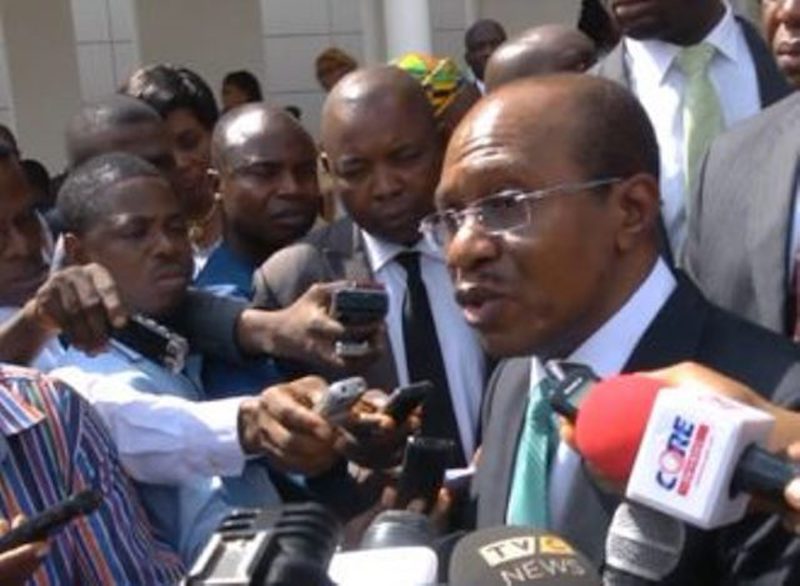Services gulp nearly half of Nigeria forex disbursed in May, ahead industrial sector’s 26%
Steve Omanufeme is Businessamlive Managing Editor.
You can contact him on steveo@businessamlive.com with stories and commentary.
July 20, 20171.9K views0 comments
The services or invisible sector of the Nigerian economy, including education, consulting, tourism, shipping and others, gulped just over 41 percent of total foreign exchange disbursed by the Central Bank of Nigeria (CBN) in the month of May, an analysis of the May monthly economic report released by the apex bank has shown. It beat the industrial sector which received a paltry 26 percent of disbursed foreign exchange, further showing that the country is still trekking on a long road to its planned diversification into a productive economy, according to analysts who interpreted this for businessamlive.
The industrial sector, including manufacturing, has always cried out against being marginalised in access to foreign exchange. At a distant second position with just 26.2 percent, analysts say it’s a development depicting a focus on the services industry as against industrial manufacturing, a situation that has made Nigerians to rely over 70 percent on foreign goods.
“The invisible sector accounted for the bulk (41.2 percent) of total foreign exchange disbursed in May 2017, followed by industrial sector (26.2 percent). The shares of other sectors in a descending order were: minerals and oil (14.8 percent); manufactured product (9.4 percent); food products (5.6 percent); transport (1.8 percent); and agricultural products (1.0 percent),” the report stated.

The report indicated that a total of US$2.64 billion was sold by the CBN to authorised dealers in May 2017, representing 70.8 percent and 106.1 percent increase above the levels in the preceding month and the corresponding period of 2016, respectively.
Read Also:
- Stakeholders advocate policy compliance in Nigeria’s building insurance sector
- Rivers State, SIX-EV charge ahead with electric 3-Wheelers, buses to…
- NAICOM sets December 31st deadline for claims settlement, unveils sector reforms
- How prepared is Nigeria for UNFCC COP29?
- Nigeria’s Sovereign Eurobond yield rises to 9.70%
The improved disbursement was attributed to the increase in inter-bank sales, matured forwards contracts and BDC sales during the review period.
Of the aggregate sales, forwards contracts disbursed at maturity were valued at US$1.85 billion or 70.1 percent of the total, while inter-bank sales amounted to US$0.65 billion or 24.7 percent. The balance of US$0.14 billion or 5.2 percent of the total was accounted for by sales to BDC.
The CBN said it sustained its effort at ensuring exchange rate stability through interventions and implementation of policies to address supply bottlenecks and enhance liquidity in the foreign exchange market. Consequently, there was an improvement in the exchange rate of the naira to major international currencies in the review period.
The average exchange rate of the naira at the interbank segment, at N305.54 per US dollar, appreciated by 0.2 percent relative to the level in the preceding month, but indicated a 35.5 percent depreciation, below the level in the corresponding period in 2016.
Similarly, at the BDC segment of the market, the naira appreciated by 0.5 per cent, on a month-on-month basis, to N384.48 per US dollar, but indicated 12.4 percent depreciation relative to the rate in the corresponding period of 2016.
Consequently, the premium between the average inter-bank and BDC rates fell by 0.4 percentage point to 25.8 per cent in May 2017 below the level in April 2017.
Following increased intervention by the Bank in the foreign exchange market and public sector payments, the unadjusted stock of foreign exchange reserves declined from US$30.75 billion at end-April 2017 to US$30.01 billion at the end- May 2017.
A breakdown of the external reserves by ownership showed that the share of Federation reserves was US$2.68 billion (8.9%); Federal Government reserves, US$7.00 billion (23.3%); and the CBN reserves, US$20.33 billion (67.8%) of the total.
